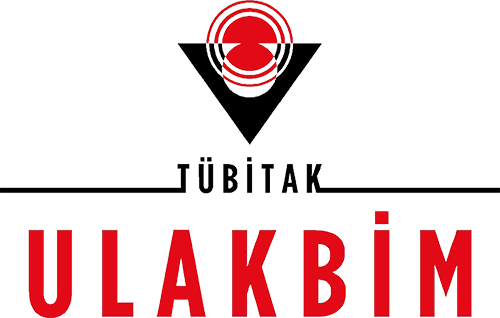
İdiyopatik Pulononer Fibrozisli Bir Hastada Pirfenidon Altında Gelişen Fotodermatit: Bir Ultraviyole Hatırlama Reaksiyonu
Ayse Baccioglu1, Ayse Füsun Kalpaklioglu1, Tuba Devrim21Kırıkkale Üniversitesi Tıp Fakültesi, Göğüs Hastalıkları Ana Bilim Dalı, İmmünoloji ve Allerji Bilim Dalı, Kırıkkale2Kırıkkale Üniversitesi Tıp Fakültesi, Patoloji Ana Bilim Dalı, Kırıkkale
Ultraviyole hatırlama reaksiyonu, önceden ultraviyole ışınına bağlı yanık gelişmiş kişinin sistemik ilaç kullanımı sonrası benzer kliniğin gelişmesiyle karakterize bir fotodermatittir. Pirfenidonla bu reaksiyon daha önce bildirilmemiştir. Yetmiş beş yaşındaki erkek hastada idiopatik pulmoner fibrozis için pirfenidon başlandıktan 4 ay sonra güneş gören deri alanlarında akut erosiv eritem gelişmişti. Önce pirfenidona bağlı ilaç erüpsiyonu olduğu düşünüldü, çünkü; eşlik eden hipereozinofilisi, deri biyopsisinde solar dermatitis sonucu vardı ve belirtiler pirfenidondan sonra gelişmiş ve ilacın kesilmesinden sonra düzelmişti. Ancak, oral provokasyon testinde hastanın ilacı tolere etmesi, deri lezyonlarının basit bir solar dermatitis için çok şiddetli olması ve deri biyopsisinde nekrotik keratinositlerin görülmesi ultraviyole hatırlama reaksiyonunu düşündürdü. Pirfenidon dozu düşürülerek yeniden başlandı, 5 aylık takip süresinde deri lezyonları nüks etmedi ve İPF hastalığında atak gelişmedi. İlaç allerjisinden farklı olarak pirfenidon ultraviyole hatırlama reaksiyonunda, tedaviye doz ayarlamasıyla devam edilebileceğini göstermesi açısından bu olgu önemlidir.
Anahtar Kelimeler: ilaç erupsiyonu, fototoksisite, pirfenidon, ultraviyole hatırlama reaksiyonuPhotodermatitis Following the Use of Pirfenidone in a Patient with Idiopathic Pulmonary Fibrosis: an Ultraviolet Recall Reaction
Ayse Baccioglu1, Ayse Füsun Kalpaklioglu1, Tuba Devrim21Kirikkale University Faculty of Medicine, Department of Pulmonary Diseases, Division of Immunology and Allergy2Kirikkale University Faculty of Medicine, Department of Pathology
Ultraviolet recall is a photodermatitis reaction that can occur in prior ultraviolet burned skin during the administration of systemic medication. No such reaction has been reported with pirfenidone. We report here on a 75-year-male patient who developed acute erosive erythema on his face, forearms and hands under pirfenidone treatment for idiopathic pulmonary fibrosis after 4 months. The initial diagnosis was drug eruption, since it developed after the initiation of pirfenidone, in accordance with hypereosinophilia and solar dermatitis on a skin biopsy, all of which improved with discontinuation. However, the patient tolerated the rechallange test with pirfenidone. The presence of necrotic keratinocytes in a skin biopsy and exaggerated dermatitis was unlikely for photodermatitis, but supported an ultraviolet recall reaction. Pirfenidone was resumed in a tapered dose, and the patient was successfully followed up for 5 months for a relapse of skin reaction, as well as IPF disease activity. This case is important in indicating that the drug can be tolerated with dose adjustment in the presence of an ultraviolet recall reaction in contrast to discontinuation need in drug allergy.
Keywords: drug eruption, phototoxicity, pirfenidone, ultraviolet recall phenomenMakale Dili: İngilizce











